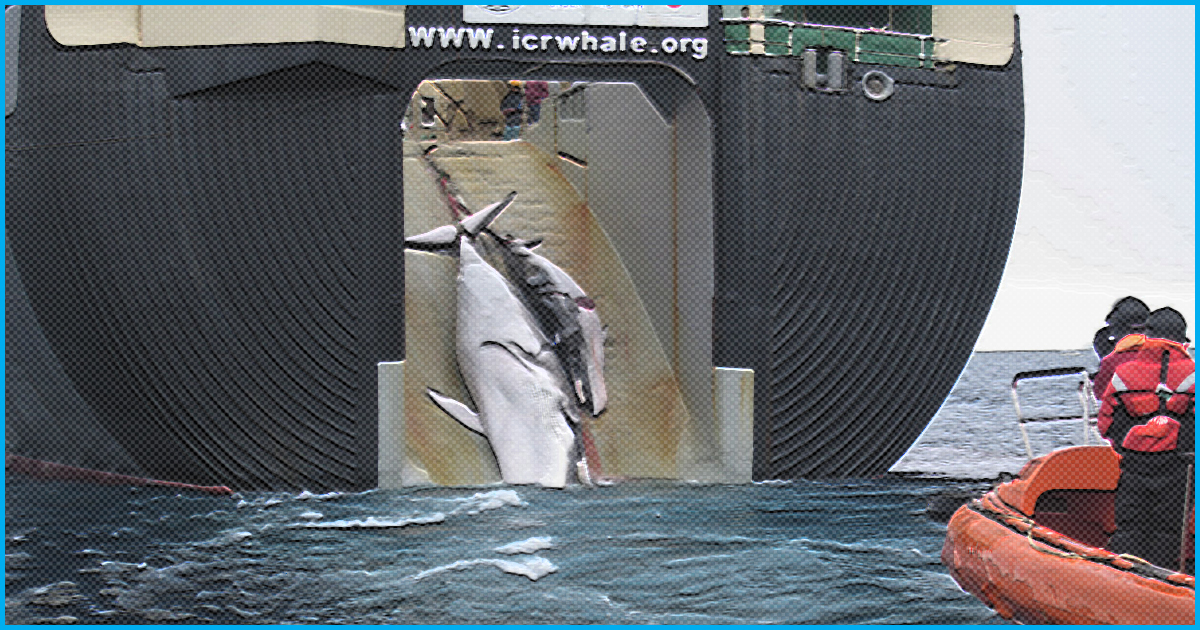Japan announced its withdrawal from the International Whaling Commission (IWC) on Wednesday and said that it will resume commercial whaling from July next year, reported CNN.
The move was expected as Japan has repeatedly threatened to pull out of the agreement and made an attempt earlier this year to convince IWC to allow it to resume commercial whaling, reported The Hindu.
Announcing the move, Japan’s chief cabinet secretary, Yoshihide Suga said that the International Whaling Commission focussed too much on conservation and had failed to develop a sustainable whaling industry, one of its stated goals. Mr Suga said “In its long history, Japan had used whales not only as a source of protein, but also for a variety of other purposes. Engagement in whaling has been supporting local communities, and thereby developed the life and culture of using whales.”
To stop decline in whale stocks, the IWC agreed to a moratorium on commercial whaling in 1986, a move that has saved several species from extinction.
Nevertheless Japan, Iceland and Norway never stopped hunting Whales. Japan justified its Antarctic hunt in name of ‘scientific research’ necessary to evaluate global populations of whale species.
As per The Washington Post, International Court of Justice(ICJ) rejected the argument in 2014 saying that Japan’s Antarctic hunt had no scientific basis. Japan stopped for a year but resumed with a new “research program” that it claimed was according to Court’s directions. Wildlife groups claim that ‘scientific whaling’ was just a sham, a cover for commercial whaling. As part of the withdrawal, Japan will stop hunting in the Antarctic and limit hunting to its own waters.
According to a report by EIA and Animal Welfare Institute said that Japan has killed about 22,000 whales since the moratorium took effect.
The demand for whale meat has declined rapidly in Japan, it was just 3,000 tons in 2016 down from 233,000 in 1962. The industry employed less than 1,000 people in 2013 and is dependent on government subsidies. Nevertheless, defending the whaling industry has a cultural and nationalist appeal as criticism of whaling is sometimes seen as imposition of Western values. Mr Suga said that the withdrawal would allow fishermen to “pass our country’s rich whaling culture onto the next generation.”
Criticism
Whaling has been severely criticised by countries such as Australia, US and also by the European Union and also by conservationist groups. A joint statement by Marise Payne, Australia’s Minister for foreign affairs and Melissa Price, the Minister for the environment said that they are “extremely disappointed” by Japan’s decision. New Zealand said that it regretted Japan’s resumption of an “outdated and unnecessary practice”.
As per The Washington Post, Kitty Block, president of Humane Society International said, “By leaving the International Whaling Commission but continuing to kill whales commercially, Japan now becomes a pirate whaling nation killing these ocean leviathans completely outside the bounds of international law.” The organization also expressed concerns that Japan may recruit other pro-whaling nations to leave the IWC thus leading to the slaughter of whales for profit.
Clare Perry of the Environmental Investigation Agency said that by leaving the IWC, Japan is rejecting multilateralism and setting a very bad precedent for conservation. San Annesely, Executive Director at Greenpeace Japan said, “The declaration today is out of step with the international community, let alone the protection needed to safeguard the future of our oceans and these majestic creatures”.
Whales are top of the food chain in the marine ecosystem. Many countries once tried to justify their whaling practice by claiming that by killing whales, the predators, they are actually doing the humankind favour. They say that with the whales dead, there will be more fish for humans to eat, as whales eat the smaller fishes. That is not true, as with the whales being on the top of the food chain, their death would result in the collapse of the entire marine ecosystem.
Also Read: 115 Plastic Cups, 25 Plastic Bags & 2 Flip-Flops Found In Dead Whale’s Stomach In Indonesia











